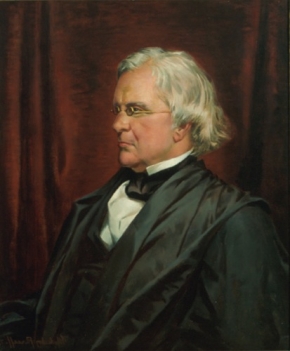You are here
Circuit Court Opinions:
Associate Justice Robert Cooper Grier, Stowe v. Thomas (1853)

Stowe v. Thomas, 23 F. Cas. 201 (C.C.E.D. Pa. 1853) (No. 13,514) [Third Circuit]
In 1852, Harriet Beecher Stowe published Uncle Tom’s Cabin, a widely read anti-slavery novel that, according to some historians, helped lay the groundwork for the Civil War. The following year, Stowe filed suit for copyright infringement against the publisher of an unauthorized German translation of her book. Justice Grier heard the case while riding circuit in Pennsylvania (which had a large German-speaking population).
Grier dismissed Stowe’s suit, finding that a foreign translation did not constitute copyright infringement because it was not an exact copy of the original work. He held that an author’s ideas, once published, became “the common property of his readers, who cannot be deprived of the use of them.” The only property retained by the author exclusively was the right “to multiply the copies of that particular combination of characters which exhibits to the eyes of another the ideas intended to be conveyed.” As a result, Grier ruled that Stowe’s “conceptions and inventions may be used and abused by imitators, playwrights, and poetasters” because they had been “voluntarily relinquished.”
Congress closed this loophole in the copyright laws in 1870, providing that authors were entitled to “reserve the right to dramatize or to translate their own works.”
